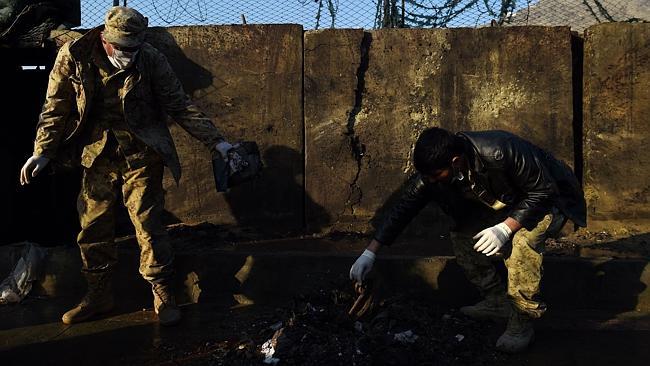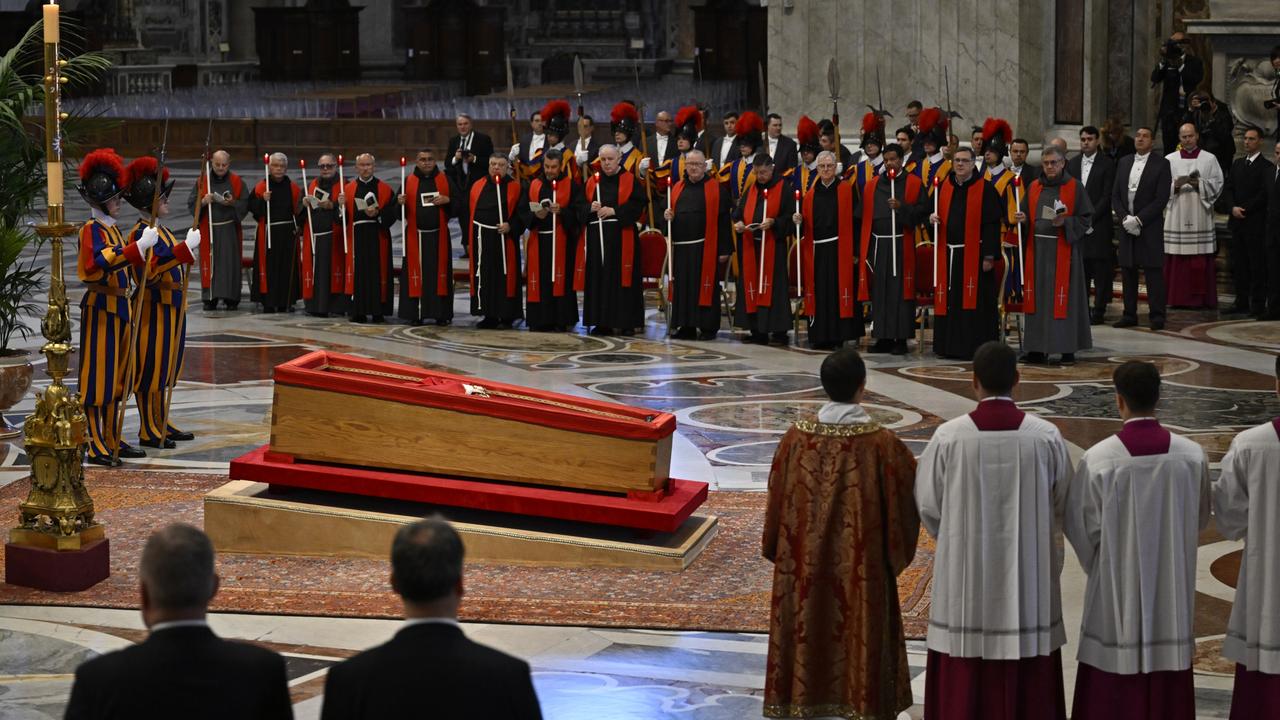Taliban kill 20 in attack on Kabul police headquarters
The Taliban has claimed responsibility for a suicide blast outside a police headquarters in Kabul that killed 20.

The Taliban has claimed responsibility for a suicide blast outside a police headquarters in Kabul, which killed 20 people and injured scores of others.
The attack happened outside the National Civil Order Police compound, which conducts counter-insurgency against the Taliban. A militant reportedly waited in a line outside the station and then detonated his vest as he neared the entrance late on Monday (AEDT).
“This attack on the Afghan police shows the contempt the Taliban have for the rule of law in Afghanistan and for those who commit themselves daily to defending the Afghan people,” NATO spokesman Brigadier General Wilson Shoffner said yesterday.
“The Taliban have no plan for the development of Afghanistan. Targeting those who defend their fellow Afghans does not advance the cause of peace.”
The attack is one of a number in recent weeks which is thought to relate to scheduled peace talks to be held in Pakistan; the Taliban attacks are either to destabilise those talks or strengthen its hand in negotiations.
The peace negotiations are to reconvene in Islamabad later this week — involving talks between officials from Afghanistan, China, Pakistan and the US — with the aim of promoting a dialogue for peace with the Taliban.
The situation has been complicated further with the emergence of Islamic State in Afghanistan, which has conducted its own terror attacks.
Islamic State militants have also clashed with Taliban fighters.
Haroun Mir, an Afghan analyst based in Kabul, said that since the 2013 death of Taliban leader Mullah Omar — which was kept secret until last year — the group had been in disarray and had split into factions.
It was difficult to know exactly who was behind the recent bomb blasts and the motivation for those attacks, he said.
“The difficulty, not only for the Afghan government, but also the Pakistanis, is how to influence the Taliban when they are in the midst of infighting and a leadership crisis,” added Mr Mir.
“From our view in Afghanistan, most of these groups are directly managed by some elements within Pakistan’s intelligence services, especially the ISI, so it will be very difficult to understand who is behind these attacks and why they are conducting them.”
Mr Mir said Afghan President Ashraf Ghani needed to improve ties with Pakistan before there could be any progress with the Taliban.
“Without giving some incentives to the Pakistanis, we won’t be able to bring the Taliban to the negotiation table,” he said.
Mr Mir said the emergence of Islamic State in Afghanistan as well as the fighting within the Taliban might influence it to join peace talks.
“The only hope we have is that perhaps Pakistan might be interested in bringing the Taliban to the negotiating table before the movement itself faces serious challenges inside the country.”



To join the conversation, please log in. Don't have an account? Register
Join the conversation, you are commenting as Logout